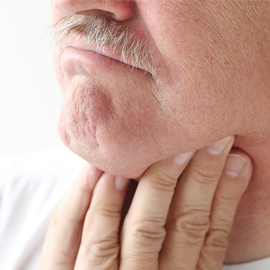
GERD is one of the most common chronic diseases in the United States. Gastroesophageal reflux disease happens when the door that separates the stomach from the esophagus becomes weakened or damaged. This door is called the lower esophageal sphincter, or LES. It is designed to close as soon as food moves from your esophagus into your stomach, but if it moves too slow, or if it doesn’t shut all the way, then digestive juices like stomach acid will flow into the esophagus and cause the burning sensation you know as heartburn.
There are as many tricks for managing heartburn as there are people who struggle with it. However, these tips and tricks don’t actually cure GERD. The only way to actually correct the condition is to physically stabilize the lower esophageal sphincter. This is done most effectively through surgical repair.
Of course, there are ways to deal with some of the symptoms of acid reflux disease for short periods of time. These solutions include:
- Using antacids to reduce acid reflux after eating
- Changing your eating habits, especially by cutting down on fatty and spicy foods
- Exercising more often, especially before eating
- Using a large pillow to keep your head above your stomach when lying down at night
- Drinking plenty of water
Addressing Acid Reflux Symptoms
There are two major symptoms of acid reflux disease. These include heartburn, which is the most common symptom that is described as a burning sensation in the chest or abdomen area, as well as regurgitation, which happens when contents from the stomach backwash into the throat and mouth.
The constant exposure to stomach acid can wreak havoc on the esophagus and your mouth. These two symptoms can cause an array of other health issues to develop, including both major and minor problems. Tooth decay, gingivitis and bad breath might start to develop after regurgitation, while frequent problems with acid reflux could result in laryngitis, a chronic sore throat or post nasal drip. When acid reflux disease starts to cause this level of discomfort, it is beyond time to take action.
The first thing to do when hoping to address acid reflux symptoms is to speak with your GERD doctor. There are some medications that can help you cope with symptoms for a short period of time, but they aren’t typically recommended for long-term use. Instead, there are some lifestyle changes that are heavily recommended for GERD patients. This includes changing your diet to reduce your consumption of spicy and fatty foods, as well as increasing exercise and sleeping with your head above your chest. So as wonderful as that Georgia barbeque sounds, it is a good idea to rethink your dietary choices and be proactive in preventing acid reflux symptoms.

Leave a Reply